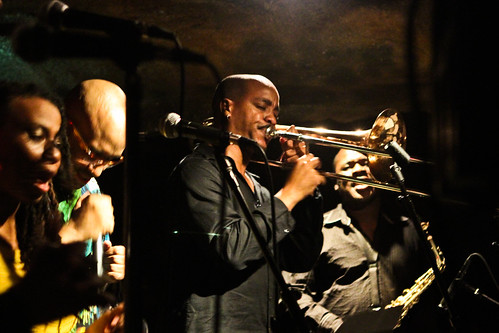Album review | Reginald Cyntje spreads the Love with a gentle message


Editorial board
The trombonist and composer Reginald Cyntje isn’t against didacticism, and he doesn’t have to be. Music creates rare opportunities to deliver serrated messages with a cushion, and that demands conviction. Cyntje’s blog finds him ministering from the pulpit of life, and he has insight. But you worry about Love, a concept album that’s heavy on vocals and filled with abstract-noun song titles (“Faith,” “Determination,” “Peace”).
Art isn’t so good at direct appeals (for reference: that Crash movie; painters from the Romantic era). Messages find your sweet spot by leading you down a more indirect path, by “kindling associations,” as the historian Joseph Bernstein said of Baudelaire’s poetry. Music should get a grip on your perspective so fully that it invites you to draw your own connections and conclusions, from within its reality. Love, Cyntje’s sophomore effort, works because it seems sure about where you should go, not how you should get there.

About that group: Herman Burney’s bass is the first thing you hear on track one, and it lays down mulchy soil for the entire record. The pianist Allyn Johnson and the drummer Amin Gumbs are all firm but counterintuitive rhythm. Over that rhythm section, it’s the brittle sweetness of Victor Provost’s steel pan that gives Cyntje his foil. Provost’s flurrying solos and fierce accompaniments are high and bright, but he’s a willing junior partner to the bandleader.
Then there’s the poetry, all written by Cyntje, recited on most tracks by a handful of singers and readers, conveying messages on the border of ethereal (“She ascended to earth to teach divinity unconditionally / Fertile with faith, she gave birth to life’s blood”). On “Hope,” when Heidi Martin and Lasana Mack recite separate verses in overlapping dialogue, jumping and quickening and lagging and responding, you lose track of what exactly is being said. You catch snatches of words and phrases, and repeated incantations. The message seems to attack you from somewhere hidden, inside the music. It feels positive, not capturable, but easy to become a part of.